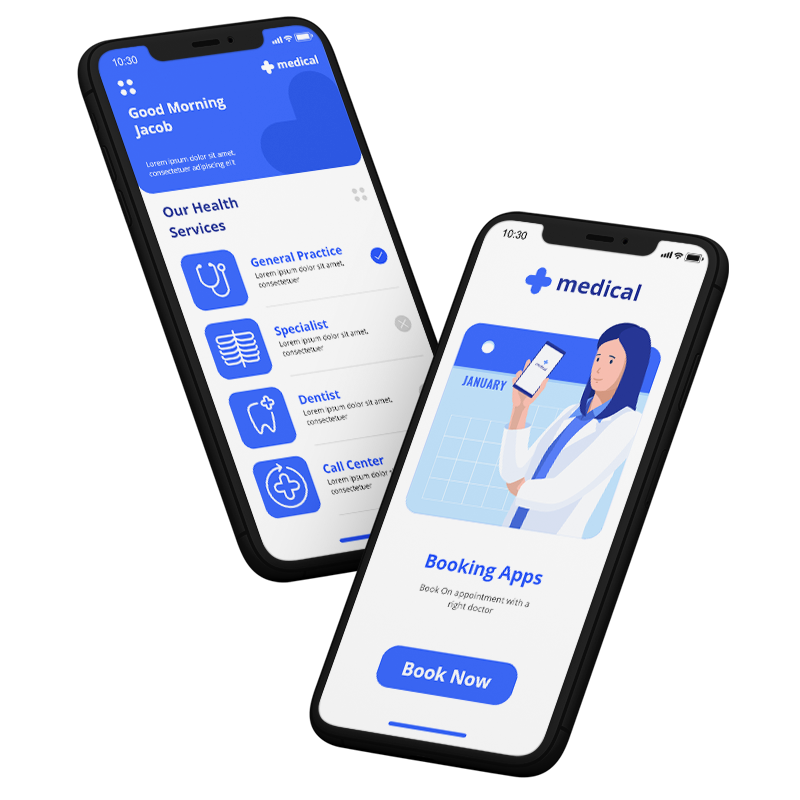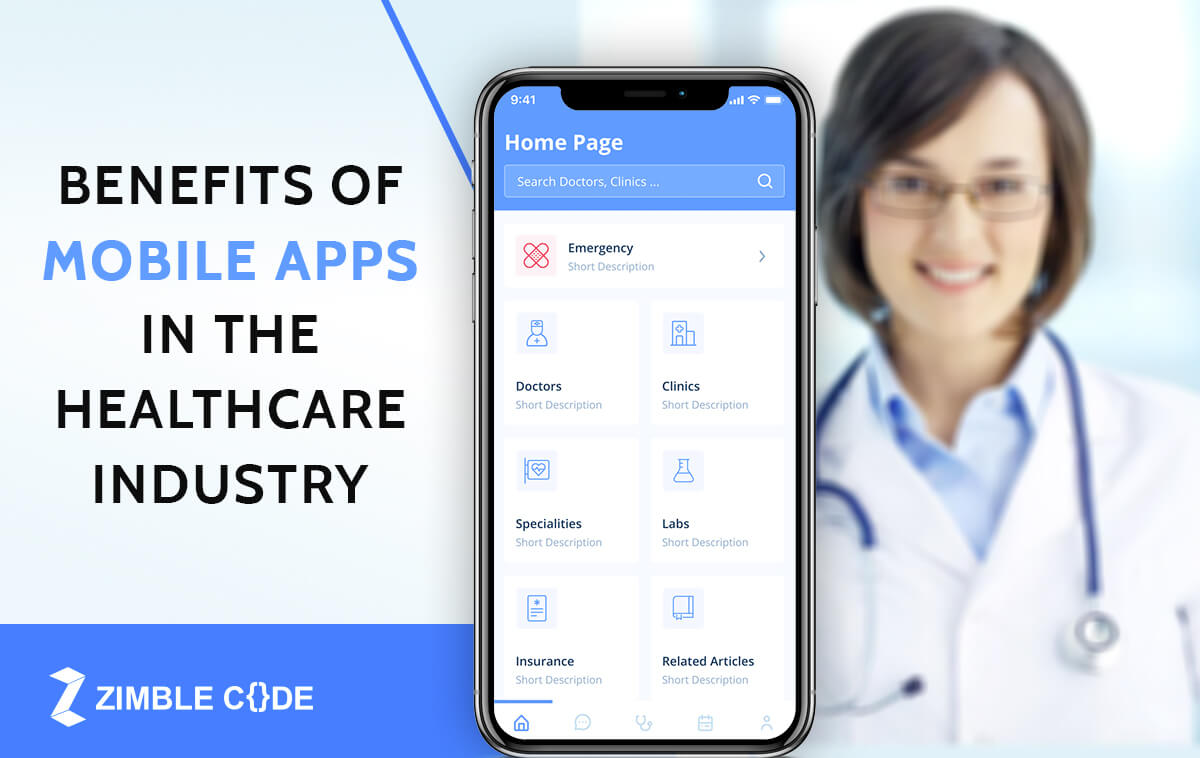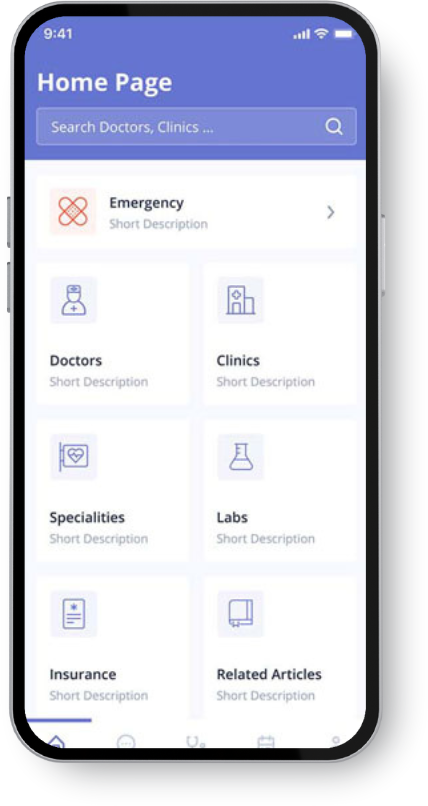The Future of Medical Care: Why Clinics Need a Mobile Application Today
As the medical care landscape proceeds to evolve, clinics face mounting stress to adapt to patient expectations for higher benefit and availability. The combination of mobile applications can serve as an important technique for enhancing client engagement and enhancing operations.
Changing Patient Expectations
As the landscape of health care evolves, client assumptions are going through a significant transformation. Today's patients are increasingly looking for benefit, availability, and customized treatment.
Moreover, individuals are becoming a lot more notified and empowered, frequently researching therapies and problems on-line before appointments. This enhanced understanding is combined with a demand for openness in healthcare processes, including cost quotes and therapy alternatives. Because of this, service providers are forced to adjust by taking on electronic devices that boost the patient experience.
The expectation for timely and efficient communication has never been higher, with lots of individuals taking into consideration responsiveness an essential component of quality treatment. mobile app for clinics. In this evolving landscape, healthcare companies must recognize these changing expectations and leverage mobile applications to foster an extra patient-centric strategy, making certain that they not just fulfill however surpass the requirements set by today's educated consumers
Enhancing Individual Involvement

Mobile applications facilitate interaction in between patients and health care carriers, enabling real-time visit scheduling, pointers for drug adherence, and direct messaging features. These performances not just boost ease yet likewise build a sense of responsibility amongst people. Mobile applications can use educational content customized to specific demands, aiding people much better recognize their problems and therapy alternatives.
The assimilation of gamification components within medical care applications can additionally encourage people to involve in healthy and balanced habits, strengthening positive lifestyle changes. By tracking progress and fulfilling success, people are more probable to remain dedicated to their health objectives. Eventually, improving client engagement through mobile applications brings about boosted health and wellness outcomes, greater person contentment, and a much more joint medical care experience. Centers that prioritize this facet will likely see a significant effect on the quality of treatment provided.
Enhancing Clinic Workflow
Streamlining center procedures is crucial for enhancing process effectiveness and optimizing individual treatment. The execution of mobile applications can significantly minimize management burdens, permitting healthcare suppliers to concentrate a lot more on individual communications. By automating consultation scheduling, person check-ins, and billing processes, clinics can reduce wait times and boost total functional effectiveness.
Mobile applications likewise assist in real-time accessibility to patient records, allowing medical care professionals to make informed decisions swiftly. This immediacy not only improves the high quality of treatment yet additionally reduces the possibility of errors related to lost or obsoleted details. Leveraging mobile technology supports a more organized approach to managing patient follow-ups and therapy strategies, making certain that no essential actions are overlooked.
In addition, mobile apps can enhance stock management by supplying clinics with tools to keep track of supplies and drugs effectively. This enables timely replenishment and More Bonuses helps stay additional resources clear of disruptions in individual care as a result of equip lacks. By integrating these functionalities right into their everyday procedures, centers can develop a more natural and reliable setting, ultimately causing boosted client end results and contentment. Accepting mobile modern technology is not simply a pattern; it is a needed evolution in the medical care landscape.
Improving Communication Channels
Efficient interaction is regularly mentioned as a keystone of quality health care shipment. In today's busy clinical environment, mobile applications can substantially enhance communication networks in between clinics, clients, and medical care companies. By incorporating mobile applications into their operations, centers can promote real-time interactions, guaranteeing that individuals obtain timely information regarding their visits, examination results, and treatment plans.
Mobile apps likewise encourage people to communicate directly with their health care groups via secure messaging features. This direct line of communication promotes a feeling of involvement and permits for prompt explanation of issues, which can cause much better adherence to therapy procedures. Push notices can remind clients of upcoming appointments or medicine routines, decreasing no-show prices and improving general health and wellness end results.

Staying Affordable in Medical Care
In a rapidly progressing healthcare landscape, organizations have to prioritize innovation and adaptability to preserve an one-upmanship. The integration of mobile applications right into medical care services is no more optional; it is important for facilities intending to enhance individual involvement, streamline operations, and enhance total solution delivery.
As clients increasingly count on digital systems for wellness management, clinics that stop working to embrace mobile modern technology threat falling behind. A well-designed mobile application can supply features such as appointment scheduling, telemedicine assessments, and access to clinical documents, giving people with convenience and cultivating loyalty.

Rivals are likewise buying mobile solutions, so remaining ahead requires constant improvement and remaining informed concerning technological advancements. Facilities should not only carry out mobile applications but additionally participate in normal updates and improvements. Inevitably, the effective integration of mobile modern technology will identify forward-thinking healthcare companies and established the benchmark for patient-centric treatment in an electronic globe.
Conclusion
To conclude, the assimilation of mobile applications in centers is essential to attend to the evolving landscape of individual assumptions. By enhancing individual interaction, streamlining operations, and enhancing interaction channels, centers can dramatically boost health and wellness end results. Additionally, the adoption of mobile modern technology positions centers to stay affordable in a significantly digital healthcare atmosphere. Eventually, the critical implementation of mobile applications stands for an essential step toward providing tailored and accessible healthcare, thus satisfying the requirements these days's equipped patients.
Inevitably, boosting individual interaction through mobile applications leads to improved wellness results, greater patient satisfaction, and an extra joint health care experience.Mobile apps also promote real-time accessibility to client documents, making it possible for health care professionals to make enlightened choices rapidly. In today's fast-paced clinical environment, mobile applications can dramatically improve communication networks between facilities, individuals, and healthcare carriers.Mobile apps also encourage clients to connect directly with their medical care teams via safe messaging attributes. Inevitably, the tactical execution of mobile apps stands for a vital step towards providing available and individualized healthcare, consequently fulfilling the requirements of today's empowered clients.